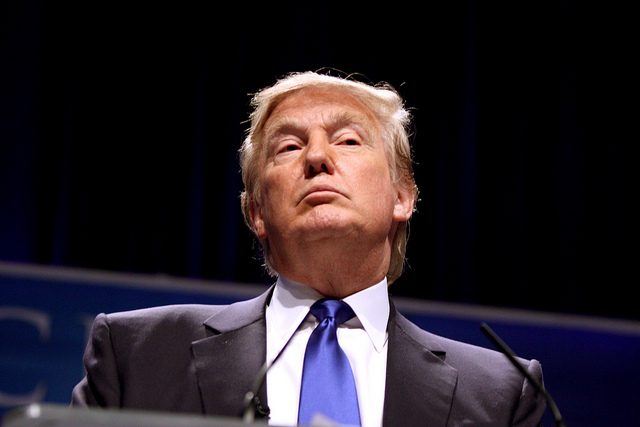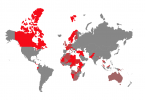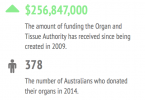The Washington Post has just published the transcript of president Donald Trump’s conversation with Prime Minister Malcolm Turnbull, where they discussed the contentious refugee swap deal.
It’s too early to know the effect these leaks will have on relations between the two allies, but here City Journal looks at the questions to come out of it.
How does Turnbull come off?
Trump: “What is the thing about boats, why do you discriminate against boats?’
Turnbull: “Let me explain …”
Trump: “That is a good idea. We should do that too. You are worse than I am”
Turnbull sticks to government rhetoric about immigration and refugees, explaining the Australia’s policy of stopping the boats and cutting off people smugglers. He suggests anyone who comes by boat – even a Nobel Prize winner, cannot be settled in Australia.
Turnbull’s ability to persuade Trump to take refugees, despite stating the US has no obligation beyond making a deal with the Obama administration, prompted The Australian’s Cameron Stewart branded Turnbull’s behavior as his “finest moment”.
“I wouldn’t go so far as to say that,” ABC commentator and long-time American politics watcher Tom Switzer tells City Journal.
“In retrospect he probably should have left diplomatic underlings to deal with the issue of the refugee matter rather than pushing it so assertively in a ‘get acquainted call’ with a new president who has just implemented an Executive Order that contradicts that refugee deal.”
Dr Aiden Warren on Turnbull’s ‘boat people’ rhetoric by Rachael Ward
For City Journal Story
Is there a refugee swap?
There are two elements to an alleged refugee swap, referred to as “the agreement”.
Turnbull mentions Australia will be required to “do a number of things for the US” which the government denies is a ‘refugee swap’ where Australia would accept refugees from Central America in return for the US taking refugees from Manus Island and Naru.
The second revalation is that the US was never required to accept the Manus and Naru refugees, despite Turnbull saying otherwise at the time.
Turnbull: “The obligation is for the United States to look and examine and take up to and only if they so choose – 1,250 to 2,000… you can decide to take them or to not take them after vetting. You can decide to take 1,000 or 100. It is entirely up to you. The obligation is to only go through the process.”
Ken Coghill, Professor at Monash University in Governance and Public Management and former Victorian Labor Party Speaker, says the Turnbull government had lead the electorate to believe the Americans had to take the Nauru and Manus refugees, contradicting his messaging to Trump.
“What the prime minister actually discussed with Donald Trump doesn’t quite match up with what he has previously said about that conversation,” he says.
“I think that that reflects badly on any leader who says one thing in private and does something differently in public.”
“Because [the electorate] have a very clear impression that is given by a government – that the Americans would be taking at least a significant number of the refugees on Manus and Naru. And it is now clear from this transcript that there was never any undertaking by the Americans to do that.”
Does this damage The Presidency, as well as Trump?
Russian Diplomat Michael McFaul, who served during Obama’s term, believes these leaks damage more than Trump, but the presidency itself.
“Leaks of sensitive or classified information damages our national security,” he told The Hill.
Obama spokesperson Tommy Vietor said panic will be spreadng through the halls of Washington.
JavaScript is not available.
No Description
“The tapes and more particularly the transcripts is highly significant,” Mr Coghill tells City Journal.
“It means that there are people within the American administration undermining their own president. And it means the president himself cannot rely on those people around him that work with him. And he can’t have private conversations with other world leaders because of their apprehension that a transcript might be published.”
Are these strategic leaks?
Not all leaks are equal, and some experts suggest this is a highly calculated leak.
“We have seen leaks in terms of dossiers and memos and of course there’s been, there was one a few years back with Obama you know obviously being caught out and on having intelligence and bugging sort of German officials and German media… [but not] the whole transcript,” says Aiden Warren.
David Frum, former speechwriter for George W. Bush and now Political Editor of The Atlantic, wrote an Op-Ed saying because the leaks reveal nothing new and do not reflect particularly badly on the Australian or Mexican leaders, they were targeted to embarrass Trump rather than reveal anything new.
Embarrassing, and historic, it is. A leak of a private meeting between leaders is unprecedented, and Frum believes will mean no leader speaks candidly to Trump – or indeed other US leaders – ever again.
David Frum on Twitter: “Transcripts seem carefully selected to do maximum harm to Trump, minimum to his foreign interlocutors. Somebody thought about this. https://t.co/kANPKuixnK / Twitter”
Transcripts seem carefully selected to do maximum harm to Trump, minimum to his foreign interlocutors. Somebody thought about this. https://t.co/kANPKuixnK
Will leaders speak openly with Trump again?
Aiden Warren from RMIT University says these leaks will fundamentally change high level diplomacy from now on.
“If you’re trying to knock out deals, it often does come down to a two person conversation, sometimes in terms of a security resolution, in terms of the trade deal, in terms of [if] there’s a hold up or some sort, sometimes it does come down to two people really getting down on the phone to negotiate some sort of resolution.
“If you’re wanting to have this sort of nitty gritty discussions you’re not going to be overly comfortable in terms of that happening if it gets wheeled out to the press because Turnbull hasn’t done so well out of it I would argue.”
How will this affect Australia’s relationship with the United States?
Tom Switzer raises questions about Turnbull’s unqualified support for Trump by Rachael Ward
For City Journal story
Tom Switzer believes both Turnbull and Trump “come out looking okay” and can’t see it having any impact on the the Australia-New Zealand United States (ANZUS) alliance.
“I think in two days time people won’t be talking about this. Because it doesn’t shed any light on what we already knew, ” he says.







